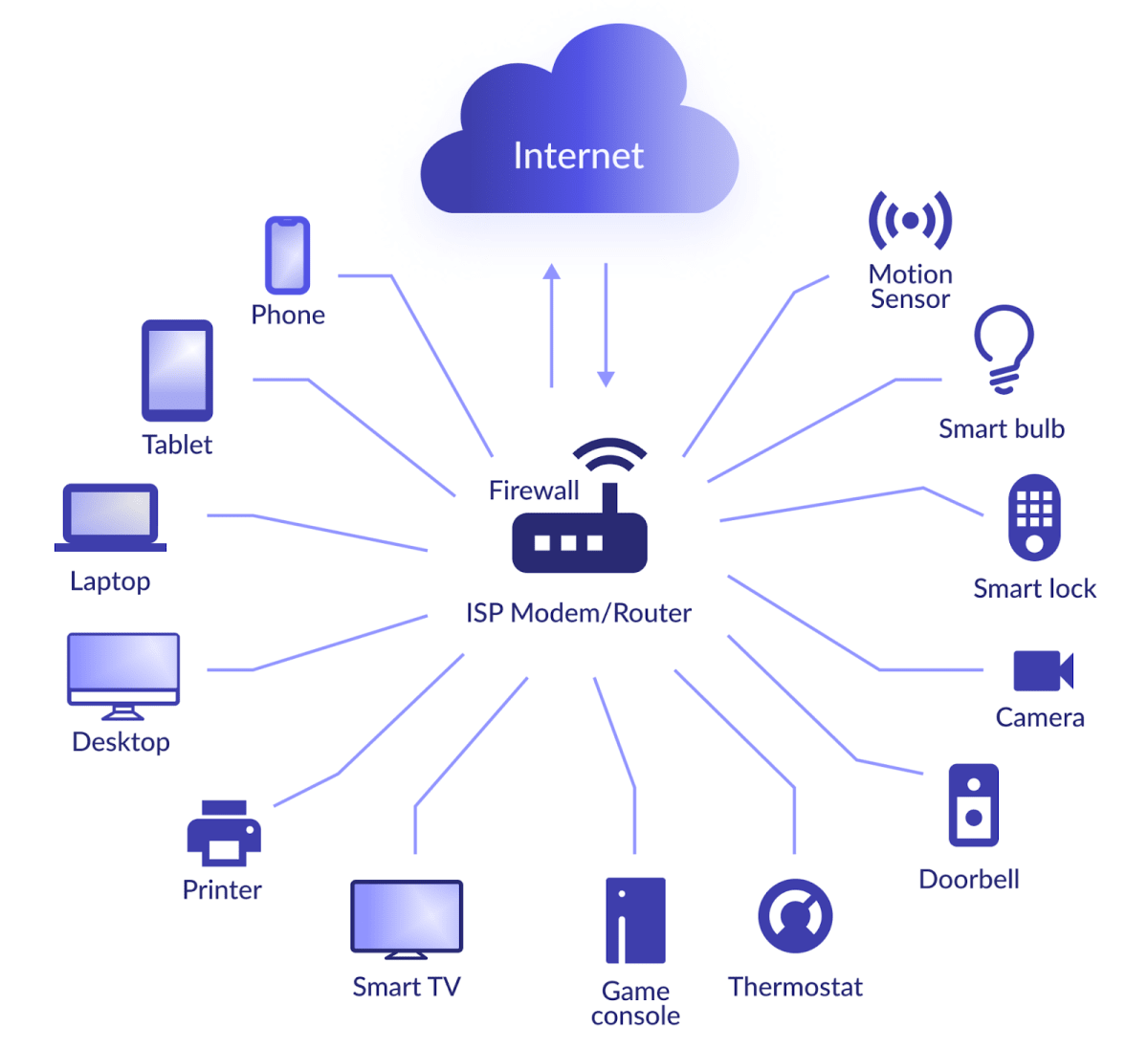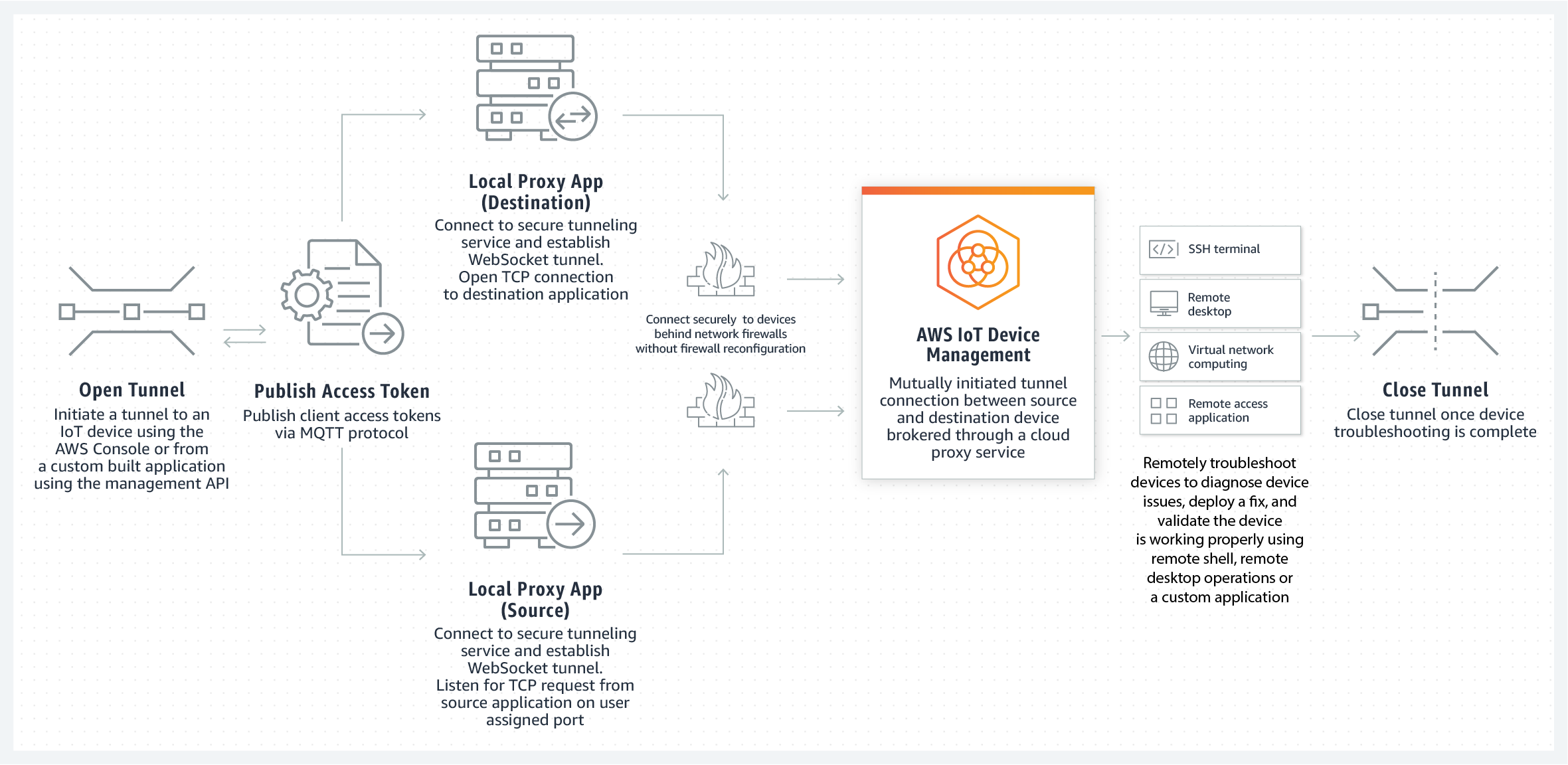IoT Device Behind Firewall Example: Securing Your Smart World
Imagine this: Your smart fridge is chatting happily with your smartphone, but there's a sneaky hacker lurking in the shadows. How do you keep your IoT devices safe? Well, that's where firewalls come in, my friend. In this article, we'll dive deep into the world of IoT device behind firewall examples, exploring how these digital barriers protect your gadgets from cyber mischief.
These days, the Internet of Things (IoT) has turned our homes into smart havens. From smart thermostats to voice-activated assistants, IoT devices make life easier and more connected. But with great connectivity comes great responsibility. That’s where firewalls step in, acting as the bouncers at a club, deciding who gets in and who stays out.
We’re about to unravel the secrets of securing IoT devices using firewalls. You’ll learn real-world examples, tips, and tricks to safeguard your smart devices. Stick around because this is going to be one heck of an adventure into the world of cybersecurity.
- An Indepth Exploration Of The Disturbing No Me Pises Pa Video
- A Guide To Embracing The Naturism Family Lifestyle A Journey Of Freedom And Connection
What Is an IoT Device Behind Firewall?
Let’s break it down. An IoT device behind firewall is simply a smart gadget that’s tucked away safely inside a protective barrier. Think of it like a castle with a moat. The castle is your IoT device, and the moat is the firewall, keeping unwanted intruders at bay. This setup is crucial in today's hyper-connected world.
Why Firewalls Matter for IoT Devices
Firewalls play a vital role in securing IoT devices. They act as gatekeepers, monitoring incoming and outgoing traffic. Without them, your devices are like open doors inviting hackers to snoop around your personal data.
- Firewalls block unauthorized access
- They filter malicious traffic
- Provide an extra layer of protection for your network
Understanding the Basics of Firewalls
Before we dive deeper, let’s talk about firewalls. A firewall is a security system that monitors and controls network traffic based on predetermined security rules. It’s like having a security guard who checks IDs before letting people into a party.
- Guide To Exploring Megapersonalscom Find Companionship Today
- The Ultimate Guide To Mara Wilsons Height An Indepth Look Into Her Life And Career
There are different types of firewalls, but for IoT devices, the most common ones are:
- Packet-filtering firewalls
- Stateful inspection firewalls
- Next-generation firewalls
Each type has its strengths and is designed to handle specific threats. Choosing the right one depends on your network needs and the level of security you require.
IoT Device Behind Firewall Example
Now, let’s look at a real-world example. Picture this: you have a smart security camera installed in your home. To protect it, you set up a firewall that only allows connections from trusted devices, like your smartphone or laptop. This means random hackers trying to access your camera feed will be blocked at the firewall.
This setup not only protects your privacy but also ensures that your camera functions smoothly without interference from malicious actors.
How Does It Work?
Here’s how it works: the firewall inspects each data packet that tries to enter or leave your network. If the packet doesn’t meet the security criteria, it gets denied access. It’s like having a bouncer who checks every guest’s ID before letting them into the club.
Setting Up a Firewall for Your IoT Devices
Setting up a firewall for your IoT devices might sound complicated, but it’s actually pretty straightforward. Follow these steps to get started:
- Identify your IoT devices and their network requirements
- Choose a firewall that suits your needs
- Configure the firewall settings to allow only trusted devices
- Regularly update the firewall software to ensure maximum protection
Remember, a well-configured firewall is your first line of defense against cyber threats. Don’t skip this step if you want to keep your smart home safe.
Common Challenges and Solutions
While firewalls are effective, they’re not without challenges. Here are some common issues and how to tackle them:
- False Positives: Sometimes, firewalls block legitimate traffic. To fix this, fine-tune your firewall rules to ensure they’re not overly restrictive.
- Performance Impact: Firewalls can slow down your network if not properly configured. Optimize your settings to balance security and speed.
- Complex Configuration: Setting up a firewall can be tricky for beginners. Consider hiring a professional or using user-friendly firewall solutions.
Best Practices for IoT Security
Securing your IoT devices goes beyond just setting up a firewall. Here are some best practices to keep your smart gadgets safe:
- Regularly update your devices’ firmware
- Use strong, unique passwords for each device
- Enable two-factor authentication whenever possible
Real-World Examples of IoT Devices Behind Firewalls
Let’s take a look at some real-world examples of IoT devices behind firewalls:
Example 1: Smart Home Security System
A smart home security system is a perfect example of an IoT device behind a firewall. The firewall ensures that only authorized devices can access the system, keeping your home safe from intruders and hackers.
Example 2: Industrial IoT Devices
In industries, IoT devices are often used to monitor and control critical processes. Firewalls are essential in these environments to prevent unauthorized access and potential disasters.
Benefits of Using Firewalls for IoT Devices
Using firewalls for IoT devices offers numerous benefits:
- Enhanced security
- Improved network performance
- Reduced risk of data breaches
These benefits make firewalls an indispensable tool for anyone using IoT devices.
Future Trends in IoT Security
The world of IoT security is constantly evolving. Here are some trends to watch out for:
- AI-driven firewalls that can learn and adapt to new threats
- Blockchain technology for secure data transmission
- Quantum encryption for unbreakable security
These advancements promise to make IoT devices even more secure in the future.
Conclusion
So there you have it, folks. IoT devices behind firewalls are the key to a secure smart home or business. By understanding how firewalls work and implementing best practices, you can protect your gadgets from cyber threats.
Don’t forget to share this article with your friends and family. Knowledge is power, and the more people know about securing their IoT devices, the safer we all are. And hey, if you’ve got any questions or comments, drop them below. I’d love to hear from you!
Table of Contents
- What Is an IoT Device Behind Firewall?
- Why Firewalls Matter for IoT Devices
- Understanding the Basics of Firewalls
- IoT Device Behind Firewall Example
- How Does It Work?
- Setting Up a Firewall for Your IoT Devices
- Common Challenges and Solutions
- Best Practices for IoT Security
- Real-World Examples of IoT Devices Behind Firewalls
- Benefits of Using Firewalls for IoT Devices
- Future Trends in IoT Security
Stay safe out there, and keep your IoT devices secure. Until next time, take care!



Detail Author:
- Name : Megane O'Reilly
- Username : audrey69
- Email : ckassulke@maggio.com
- Birthdate : 1989-09-29
- Address : 51171 Abshire Fields Pfannerstillfurt, RI 82572-8280
- Phone : 786.382.9238
- Company : Hoeger Inc
- Job : Forester
- Bio : Nulla corporis omnis error quia quaerat et enim. Dignissimos aut quis quam laborum. Quis quia ipsa nostrum tempore molestiae saepe corporis. Eum repellat temporibus placeat voluptatum dolore autem.
Socials
linkedin:
- url : https://linkedin.com/in/everette_id
- username : everette_id
- bio : Distinctio aliquam nihil quam molestias voluptas.
- followers : 4325
- following : 840
facebook:
- url : https://facebook.com/everette9734
- username : everette9734
- bio : Nulla distinctio provident eligendi architecto corporis nemo.
- followers : 3718
- following : 1615
instagram:
- url : https://instagram.com/everette669
- username : everette669
- bio : Rerum nemo impedit incidunt ut facilis. Eius quaerat voluptatum dolor sed cupiditate.
- followers : 6603
- following : 1617
tiktok:
- url : https://tiktok.com/@everette.beier
- username : everette.beier
- bio : Deserunt incidunt tempore dolores unde.
- followers : 5603
- following : 1831
twitter:
- url : https://twitter.com/everette.beier
- username : everette.beier
- bio : Nesciunt expedita enim ducimus vel. Sed accusantium autem qui in. Explicabo minima quo error corrupti est aut.
- followers : 2781
- following : 541